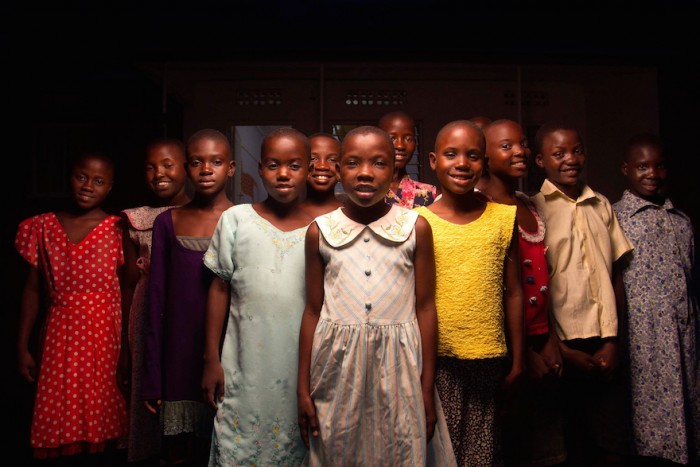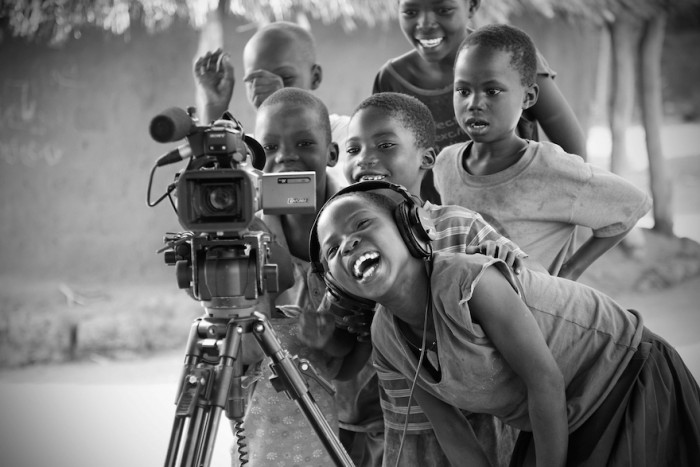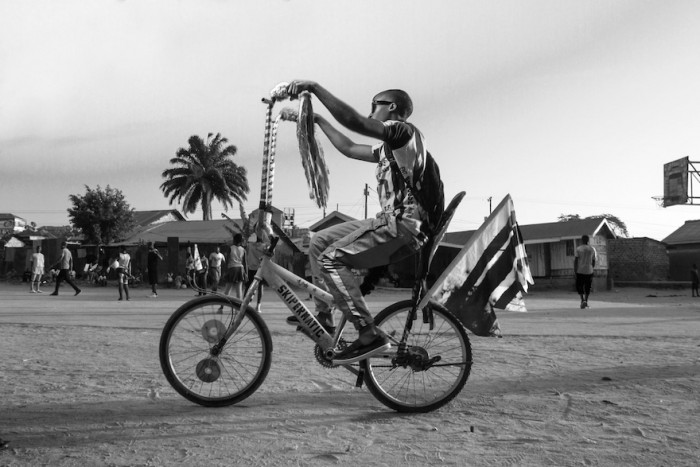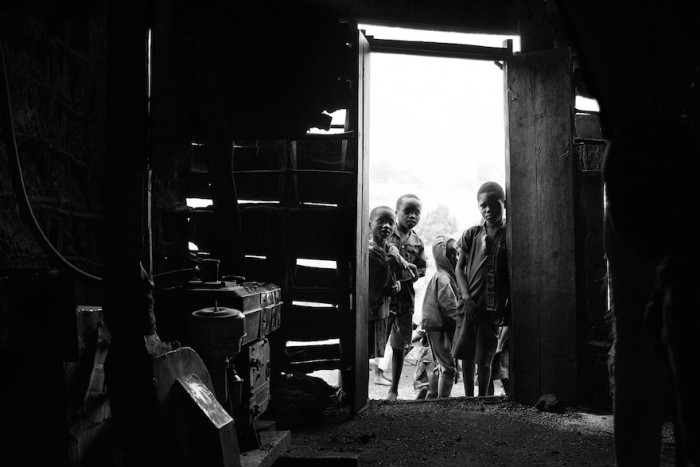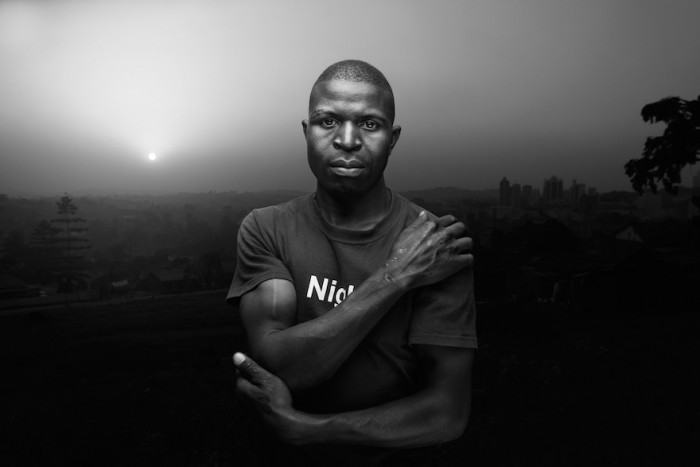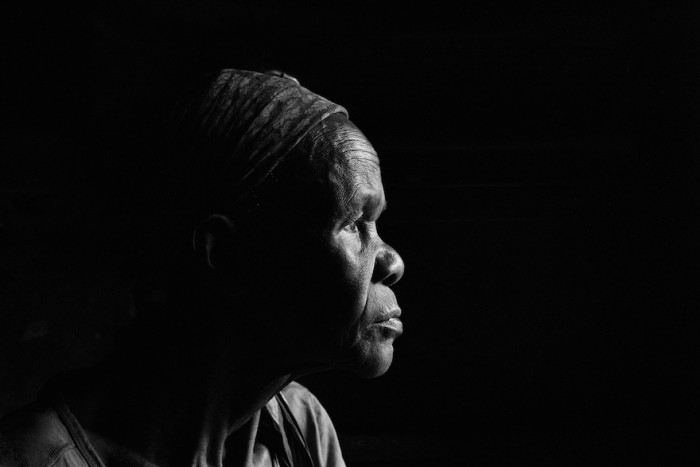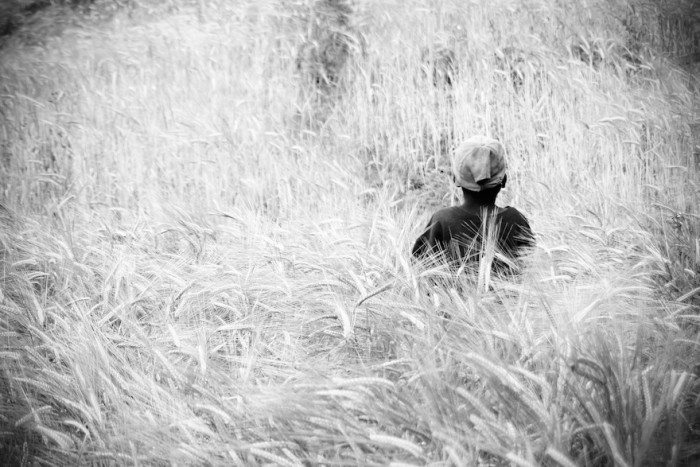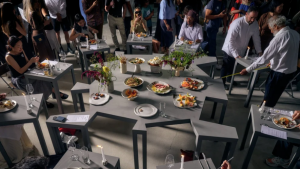From the Series
Photography captured Joel Nsadha’s imagination when he was young: his uncle was a professional photographer, so the aptitude for capturing a moment on film was clearly in the family. At age 10, Nsadha’s older brother made him a pin whole camera, which he played around with until he got his first Canon.
He is now living in New York, where he’s hoping there is a greater appreciation for the arts – one that has developed over many years. In comparison to Uganda, where making a living as an artist was pretty challenging.
“New York is a collection of all sorts of ideas and people. People think I’m just another normal, local guy until I start to speak with my Ugandan accent. Then they’re excited to hear about this exotic, tropical place called Uganda. Many of the people I meet don’t know much about my part of the world.”
At the beginning of 2016, Nsadha won the National Geographic photo competition in the People category. The photograph is of Bwenge, a fashionable young man from Kampala sitting on top of a bike he had decorated.
“When I first met him [Bwenge], there was no doubt he spent a good amount of time decorating and taking care of his bicycle. He represents millions of youthful Ugandans,” says Nsadha. “Demographically, Uganda is a very young country with an estimated 60 per cent of the entire population under the age of 35. Young men and women that seek something to hold on to and cherish. For some, it is the visual and performing arts, for others it is whatever kind of education, and for many it is just the desire to have any of the two.”
The award joins two Ugandan Press Photo Awards that Nsadha has won. He hopes that these prizes will help open doors. The National Geographic award already led him to a two-month long show in New York.
After studying photography at the Margaret Trowel School of Industrial and Fine Art at the Makerere University in Kampala, Nsadha has done work for many charity organisations around Uganda and worked on several personal projects.
Although his dad never quite understood his choices, Nsadha’s parents were always supportive of his decisions. His siblings were also creative by nature, but chose to study more vocational courses at university.
“It is quite unusual to study something creative,” says Nsadha. “Many creative people study something they think will give them a better shot at life.”
Nsadha was always motivated by the idea that his photographs were telling the story of the subject’s life in some way. The images, he believes, were a way of communicating something untold about each person.
“People inspire me,” he says. “Everybody has an interesting story to tell.”


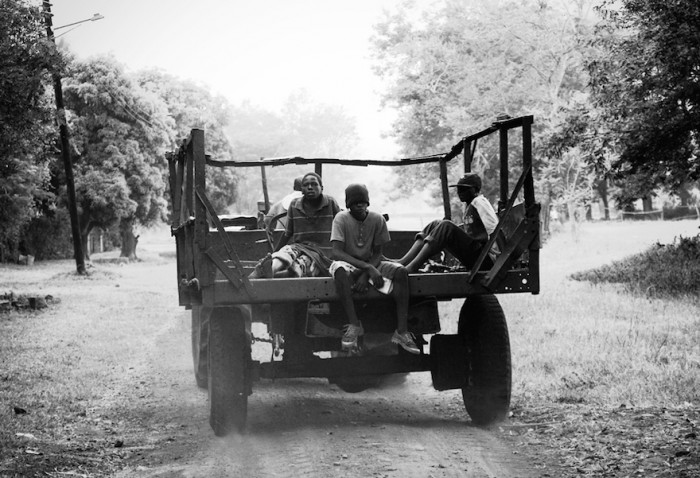
![<p>At the beginning of 2016, Nsadha won the <a href="https://photography.nationalgeographic.com/contest-2015/gallery/winners-all/11">National Geographic photo competition</a> in the People category. The photograph is of Bwenge, a fashionable young man from Kampala sitting on top of a bike he had decorated.</p><p>“When I first met him [Bwenge], there was no doubt he spent a good amount of time decorating and taking care of his bicycle. He represents millions of youthful Ugandans,” says Nsadha. “Demographically, Uganda is a very young country with an estimated 60 per cent of the entire population under the age of 35. Young men and women that seek something to hold on to and cherish. For some, it is the visual and performing arts, for others it is whatever kind of education, and for many it is just the desire to have any of the two.”</p>](https://www.designindaba.com/sites/default/files/styles/scaledlarge/public/node/news/21480/gallery/joel-racer-bike.jpeg?itok=OM-2GOsv)
